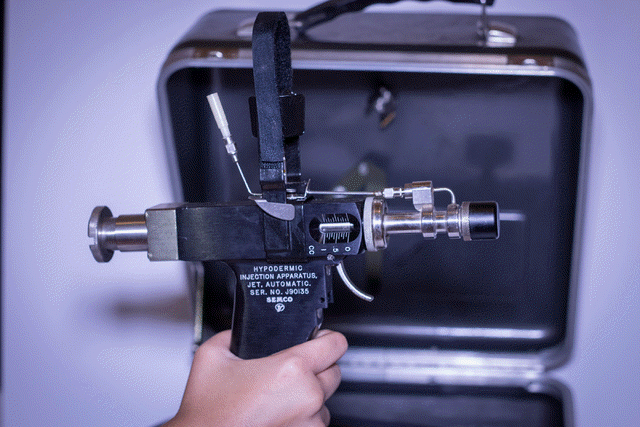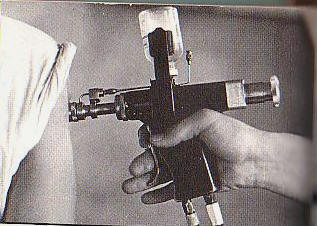|
|
||||||||||||||||||||||||||||||||||
|
Toronto, Ontario - Wednesday, November 20, 2002 - After a five-year criminal investigation into the blood distribution system in Canada, the RCMP Blood Task Force has laid charges of criminal negligence causing bodily harm under Section 221 of the Criminal Code of Canada, and charges of common nuisance by endangering the public under Section 180 of the Criminal Code of Canada, as well as a charge of failure to notify under the Food and Drugs Act Regulations. These charges relate to decision-making within the structures and systems of the blood distribution system in Canada between the years 1980 and 1990. The charges were laid using the laws in effect at the time. Charged are: Doctor John Furesz, age 75, Ottawa, Ontario - charged with three counts of criminal negligence causing bodily harm and one count of common nuisance by endangering the public. Dr. Furesz was the former Director of the Bureau of Biologics at the federal government’s Health Protection Branch. Doctor Wark Boucher, age 62, Nepean, Ontario - charged with three counts of criminal negligence causing bodily harm and one count of common nuisance by endangering the public. Dr. Boucher was the former Chief of the Blood Products Division of the Bureau of Biologics at the federal government’s Health Protection Branch. The Canadian Red Cross Society,
through its former Blood Transfusion and Blood Donor Recruitment
Services, Ottawa, Ontario - charged with six counts of common nuisance
by endangering the public. The Armour Pharmaceutical Company, a Delaware Corporation, based in Bridgewater, New Jersey (USA) - charged with three counts of criminal negligence causing bodily harm and one count of common nuisance by endangering the public under the Criminal Code of Canada, as well as one count of failure to notify under the Food and Drugs Act Regulations. Doctor Michael Rodell, age 70, Bala Cynwid, Pennsylvania, U.S.A. - charged with three counts of criminal negligence causing bodily harm and one count of common nuisance by endangering the public. Dr. Rodell is the former Vice President of Scientific and Regulatory Affairs at the Armour Pharmaceutical Company. “The responsibility of the RCMP as Canada’s national police service is to ensure safe homes and safe communities,” stated Superintendent Rod Knecht, Officer in Charge of the Toronto-based RCMP Blood Task Force. “In fulfilling this mandate, the primary responsibility of the RCMP Blood Task Force was to gather the facts on behalf of the Canadian public, and to lay criminal charges if the evidence supported reasonable grounds that a criminal offence had occurred.” “The charges we have announced today reflect the fact that our investigation has met the requirements to lay these particular charges, ” added Superintendent Knecht. “It is important to note that there are specific aspects of this investigation that we continue to pursue. The possibility exists that we will be laying further charges.” “The Canadian public needs to have confidence in their public institutions,” added Superintendent Knecht. “The Canadian public has the right to expect the safest blood and the safest blood products possible. This is fundamental to the health, safety and lives of everyone living in Canada.” “This major criminal investigation was both massive and complex, involving many jurisdictions, hundreds of witnesses and over a million of pages of documents,” said Inspector Gilles Michaud, Officer in Charge of the Ottawa-based portion of the RCMP Blood Task Force. “One of the major challenges was that the alleged offences occurred fifteen to twenty years prior to the start of the investigation; so, locating witnesses and documents for the time period under investigation was a lengthy and exacting task,” added Inspector Michaud. “Investigators took a deliberate, thorough and systematic approach.” During the course of the
investigation, the RCMP received, reviewed and investigated more than
480 complaints from people who were allegedly infected and/or affected
by contaminated blood in Canada. Blood Task Force investigators
interviewed in excess of 700 people throughout the world including
witnesses as well as experts in the fields of medicine, law, academics
and science. They took more than 320 witness statements and collected
and analyzed over 1.2 million pages of documents. Investigators traveled
to nine countries to gather evidence relating to the investigation. The RCMP dedicated a full-time co-ordinator to develop ongoing communications with those impacted by tainted blood. This was a first for an RCMP file of this magnitude and national scope. It was intended to provide a clear understanding of the criminal justice system without compromising the integrity of the investigation. In the 1980's, numerous people were infected with the Human Immunodeficiency Virus (commonly known as HIV) through the blood supply system in Canada. Some unknowingly infected others. Thousands more were infected with Non-A Non- B Hepatitis (now commonly known as Hepatitis C) as consumers of blood and blood products. Some were infected after receiving transfusions of blood components, usually in a hospital and often during surgery. Others became infected after using
factor concentrates (blood products to treat hemophilia) that were made
from the pooled plasma of a large number of blood donors. On October 4, 1993,an Order of Council (PC 1993-1879) authorized a Commission of Inquiry on the Blood System in Canada, pursuant to Part 1 of the Inquiries Act. The Honourable Mr. Justice Horace Krever was appointed commissioner, and public hearings began November 22, 1993. Immediately after the Krever Commission’s report was published in November 1997, the RCMP received complaints from individuals and organizations alleging criminal wrong-doing within the blood distribution system in Canada. On December 22, 1997, the RCMP announced it would conduct a review of the findings of the Krever Commission of Inquiry into the Blood System in Canada to determine whether there were grounds to launch a criminal investigation. At the completion of the review process, on February 12, 1998, the RCMP announced that it was launching a full scale criminal investigation into the blood distribution system in Canada. The RCMP Blood Task force was created and a 1-888 number (1-888-530-1111) was established to receive information from the public.
|
|
|||||||||||||||||||||||||||||||||
|
|||||||||||||||||||||||||||||||||||





